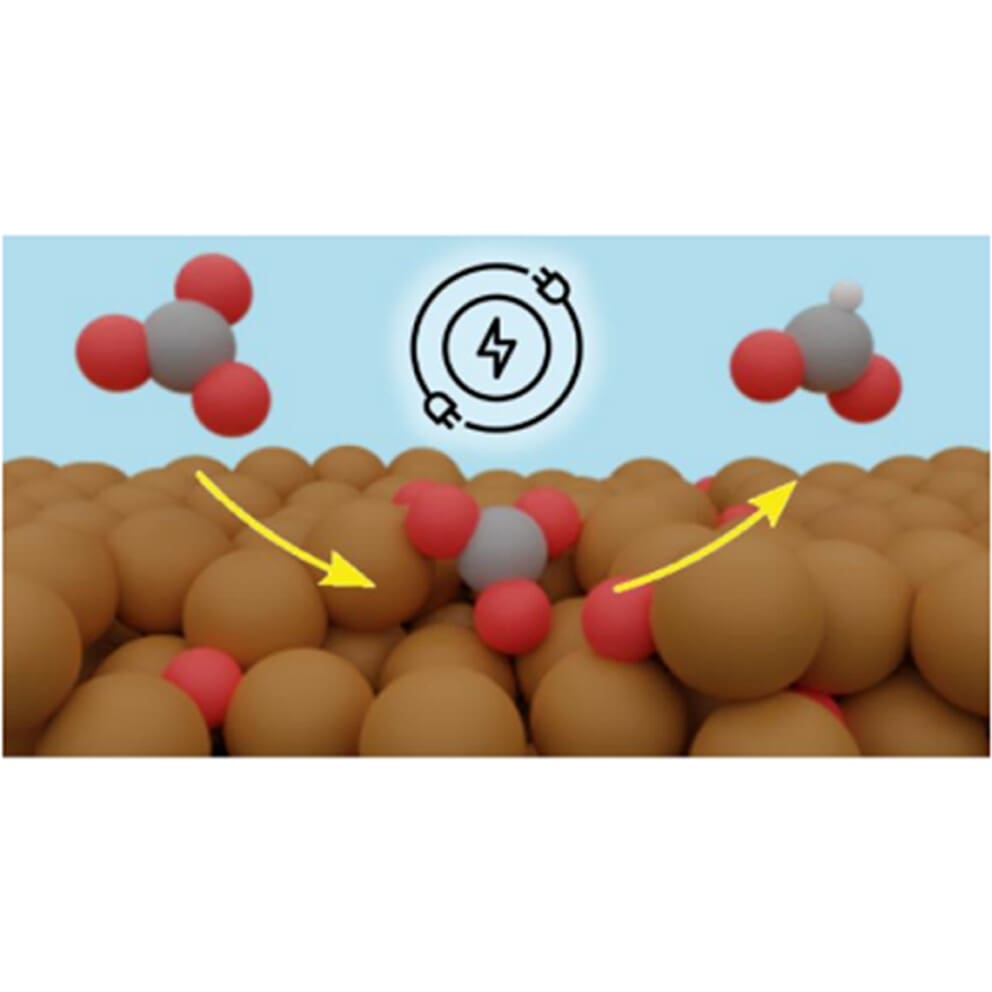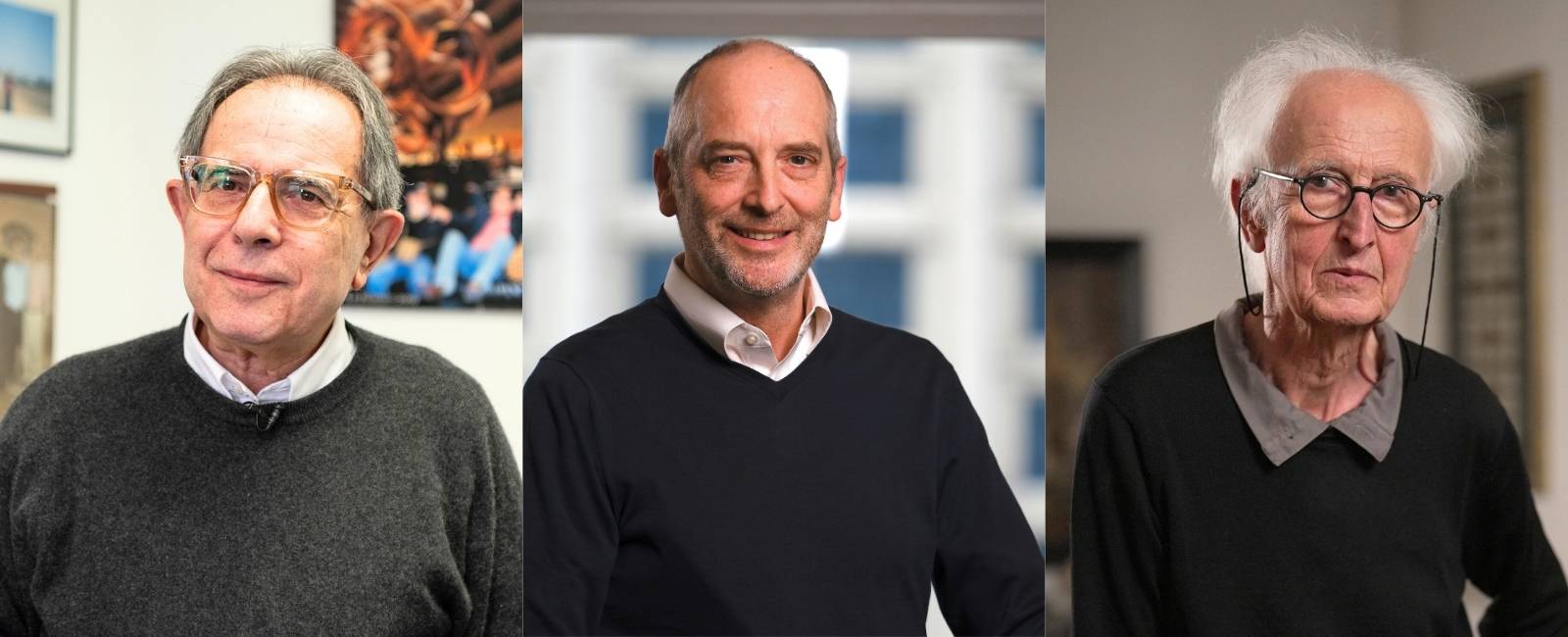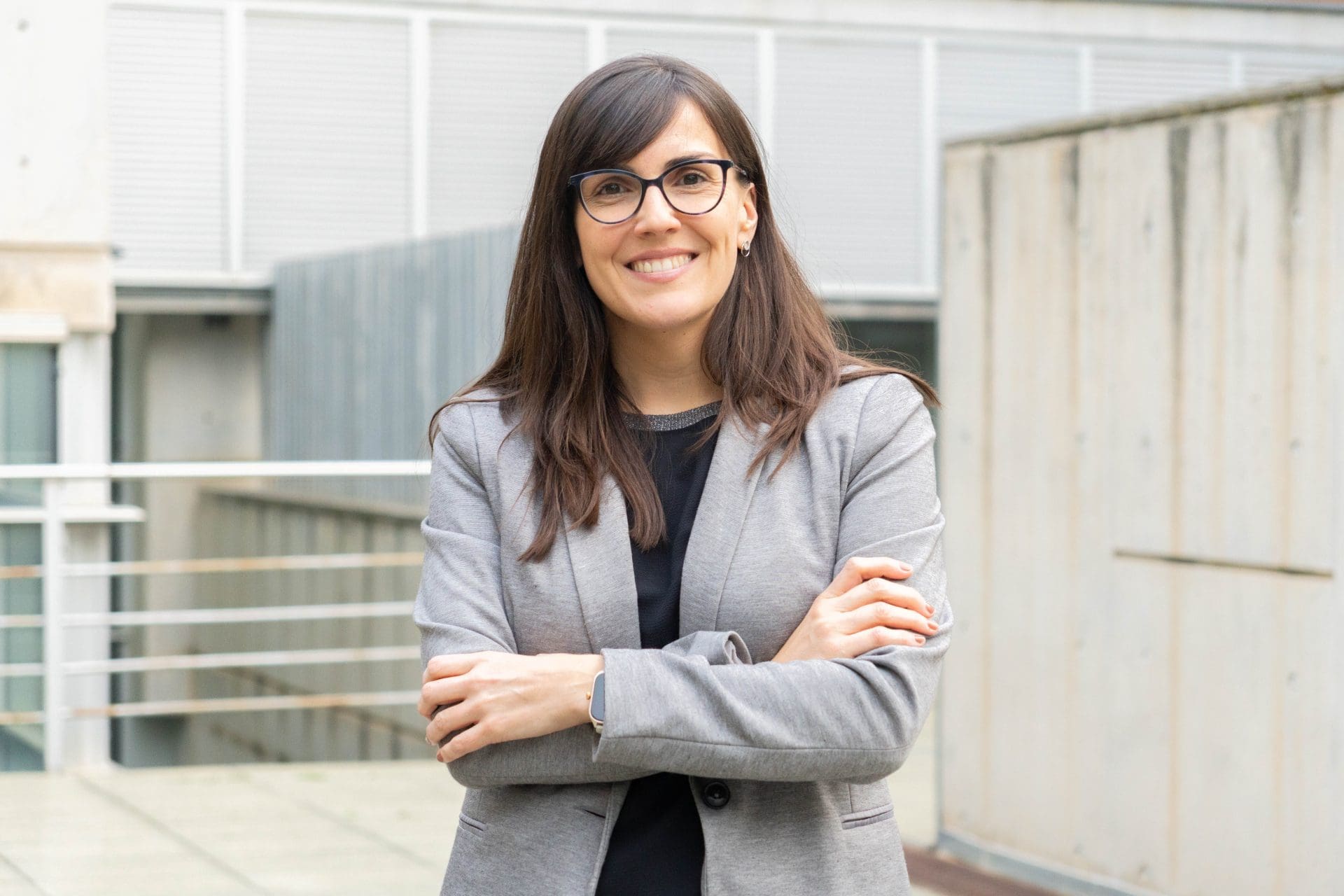Pioneering pathway to reduce the formation of carbonates in electrochemical CO2 reduction reaction
9th November 2023 -
A collaboration between the National University of Singapore, ETH Zürich and the group of Prof. Núria López, from ICIQ, has published in the Journal of the American Chemical Society (JACS) the exploration of a direct carbonate reduction pathway. This is a notable discovery, as the formation of carbonates affects eCO2RR efficiency.
The electrochemical CO2 reduction reaction (eCO2RR) stands as a promising tool in the fight against climate change if feed with renewable energy. This process allows for the conversion of carbon dioxide, a major greenhouse gas, into valuable chemical products like formate, ethylene and ethanol. However, the loss of a significant part of the CO2 reactant as carbonates (CO32–), influence both carbon and energy conversion efficiencies.
The present work reveals that carbonate species formed during eCO2RR on copper surfaces are active intermediates, and that the presence of adsorbed carbonates on the electrodes can be related to formate production. The difference in stabilities of the intermediates when varying the electrochemical potential has allowed the researchers to use pulse electrolysis to control the formate generation.
“Carbonates are a huge problem in eCO2RR. Our work introduces a novel pathway to transform carbonates that are known to affects eCO2RR efficiency”, as explains Prof. Núria López, group leader at ICIQ.
The research presented here has been developed following a long-term collaboration with Prof. Boon Siang Yeo, from the Department of Chemistry of the National University of Singapore; and with Prof. Javier Pérez-Ramírez, from the Institute for Chemical and Bioengineering of the ETH Zürich.
“After more than a year of collaboration, this work has been possible thanks to the constant feedback and discussion between experimentalists and theoreticians. Our colleagues’ initial insights allowed us to build the computational models for further understanding the carbonate reduction, paving the way for new dynamic catalysts for eCO2RR”, declares Enric Ibánez Alé, a PhD student at Prof. López’ group and one of the authors.
This project has received financial support from the Agencia Estatal de Investigación AEI/MCIN/10.13039/501100011033/ FEDER, UE (PID2021-122516OB-I00 and CEX2019-000925-S); The National Research Foundation of Singapore (Urban Solutions and Sustainability, Industry Alignment Fund (Pre-Positioning) Programme) (A–0004543–00–00), Research & Experimentation group at Shell (A–0004543–01–00), and NCCR Catalysis (grant number 180544). Enric Ibánez Alé acknowledges MCIN/AEI /10.13039/501100011033 and ESF ‘European Social Fund. Investing in your future’ for a predoctoral grant (PRE2021-097615).

Related news

Let's create a brighter future
Join our team to work with renowned researchers, tackle groundbreaking
projects and contribute to meaningful scientific advancements








 27-03-2025
27-03-2025 















